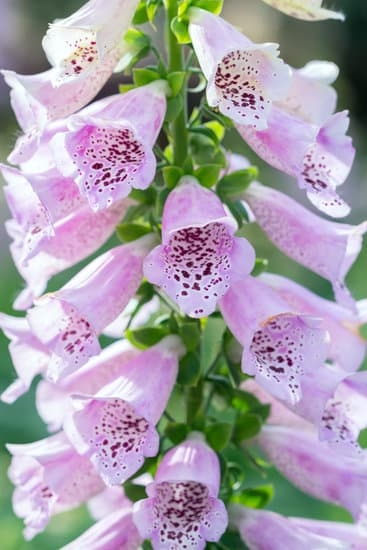Are you looking for creative and effective planter gardening ideas? Whether you have a green thumb or are just starting out with gardening, this article will provide you with all the inspiration you need to create a beautiful and flourishing planter garden. From the benefits of planter gardening to tips for maintenance and care, we’ve got you covered.
Planter gardening is a versatile and practical way to cultivate plants in a controlled environment. In this comprehensive guide, we will explore the various types of planters available, the right plants to choose for your garden, creative design ideas, and DIY projects that will make your planter garden truly unique.
With an emphasis on incorporating planter gardening into small spaces, we will show you how to embrace the beauty of nature even if you have limited outdoor square footage. Whether you’re a seasoned gardener or just starting out, there’s something for everyone in this article. So grab your gardening gloves and get ready to turn your outdoor space into a visual delight with our expert planter gardening ideas.
Benefits of Planter Gardening
When it comes to gardening, planter gardening offers a multitude of benefits that make it an attractive option for both experienced and novice gardeners alike. One of the primary advantages of planter gardening is its versatility and flexibility. Whether you have a spacious backyard or a small balcony, planter gardening can be adapted to suit any space. This makes it ideal for urban dwellers or those with limited outdoor space.
Enhanced Accessibility
Another major benefit of planter gardening is the accessibility it provides. By growing plants in containers, individuals with physical limitations or disabilities can still enjoy the therapeutic and rewarding benefits of gardening without having to navigate traditional garden beds. This makes planter gardening an inclusive and accessible option for individuals of all abilities.
Reduced Maintenance
Planter gardening also offers the advantage of reduced maintenance compared to traditional gardens. With planters, there is less weeding required, as the confined space reduces the likelihood of invasive plants taking over. Additionally, container plants are less susceptible to pests and diseases, making them easier to care for. This reduced maintenance requirement can be particularly appealing for busy individuals who still want to enjoy the beauty of a garden without dedicating extensive time and effort.
Portability
One more benefit that planter gardening provides is portability. Planters can be easily moved around, allowing gardeners to rearrange their outdoor space according to their aesthetic preferences or seasonal changes. Additionally, this portability is especially advantageous for renters or those who may need to relocate, as they can bring their beloved plants with them wherever they go.
Incorporating these benefits into your planter gardening ideas can lead to a successful and satisfying experience that adds natural beauty and greenery to any living space.
Types of Planters for Gardening
When it comes to planter gardening, choosing the right type of planter is essential for the success of your plants. There are various types of planters available, each with its own unique features and benefits. One of the most common types is the traditional clay or terracotta pot, which is not only affordable but also breathable for plant roots. These pots come in a variety of sizes and shapes, making them versatile for different types of plants.
Another popular option for planter gardening is plastic containers, which are lightweight and come in an array of colors and designs. Plastic planters are also durable and moisture-resistant, making them suitable for both indoor and outdoor use. For a more rustic and natural look, wooden planters are a great choice. They add a charming touch to any garden or patio space and can be easily customized with paint or stain.
For those looking for a modern and sleek aesthetic, metal planters such as zinc or stainless steel can be an excellent option. These planters are sturdy and weather-resistant, perfect for contemporary gardens. Additionally, hanging planters, window boxes, and vertical wall planters are ideal for maximizing space in small gardens or urban environments.
Regardless of the type of planter you choose, ensure that it has proper drainage holes to prevent waterlogging and root rot. Consider the material, size, and design that best suits your specific needs and aesthetic preferences when selecting planters for your gardening projects. Whether you opt for classic terracotta pots or innovative hanging planters, there are endless options to explore when it comes to planter gardening ideas.
Choosing the Right Plants for Planter Gardening
When it comes to planter gardening ideas, choosing the right plants is crucial for the success of your garden. Not all plants thrive in containers, so it’s important to select ones that are well-suited for this type of gardening. Some popular choices for planter gardening include herbs like basil, thyme, and rosemary, as well as compact vegetables like cherry tomatoes, lettuce, and peppers. Flowers such as petunias, marigolds, and pansies also do well in planters.
It’s important to consider the size of your planters when choosing plants. Larger planters can accommodate a wider variety of plants and allow for deeper root systems, while smaller planters are better suited for compact plants with shallow roots. Additionally, consider the amount of sunlight your planters will receive and choose plants that are appropriate for those conditions.
Another factor to consider when choosing plants for planter gardening is maintenance. Some plants require more frequent watering and fertilizing than others, so it’s important to select plants that align with the time and effort you’re willing to put into caring for them.
| Planter Type | Suitable Plants |
|---|---|
| Hanging Baskets | Petunias, Lobelia, Ivy |
| Window Boxes | Geraniums, Impatiens, Fuchsia |
| Raised Beds | Lettuce, Herbs, Strawberries |
Creative Planter Arrangements and Designs
When it comes to planter gardening, the possibilities for creative arrangements and designs are endless. Whether you have a small balcony, a backyard space, or even just a sunny windowsill, there are countless ways to create stunning and unique planter displays that will enhance the beauty of your home.
Vertical Gardens
One creative way to maximize space and create a stunning visual impact is by incorporating vertical gardens into your planter design. By using hanging planters, wall-mounted planters, or even repurposing old pallets as planter boxes, you can create a lush green oasis even in the smallest of spaces.
Colorful and Textured Combinations
Another way to get creative with your planter designs is by playing with color, texture, and plant combinations. Consider mixing different types of foliage plants with colorful flowering plants to create eye-catching contrast and visual interest. Incorporating trailing plants can also add a dynamic element to your planter arrangements.
Themed Planters
For an extra touch of creativity, consider designing themed planters. For example, you could create an herb garden planter with a variety of culinary herbs for cooking enthusiasts, or a succulent garden planter for those who love low-maintenance plants with unique shapes and colors.
By implementing these creative planter gardening ideas into your own space, you can bring life and beauty to any environment while showcasing your personal style and creativity.
Tips for Successful Planter Gardening
When it comes to successful planter gardening, there are several factors to consider in order to ensure your plants thrive and your garden looks its best. Here are some tips to help you achieve success with your planter gardening ideas:
- Choose the right location: Place your planters in areas that receive adequate sunlight for the specific plants you have chosen. Some plants may require full sun, while others may thrive in partial shade.
- Provide proper drainage: Make sure your planters have drainage holes to prevent water from pooling at the bottom, which can lead to root rot. You can also add a layer of gravel at the bottom of the planter before adding soil to improve drainage.
- Use high-quality soil: Invest in good quality potting soil that is suitable for the types of plants you are growing. Different plants may require different types of soil, so be sure to do your research.
In addition, it’s important to regularly check on your planters for signs of pests or disease, and take appropriate action if any issues arise. Keep an eye on water levels and make sure your plants are getting enough moisture without being overwatered. With these tips in mind, you’ll be well on your way to successful planter gardening and a beautiful garden full of thriving plants.
Remember that Planter Gardening is not only about planting flowers but also about creating a sustainable vegetable garden or even herbs garden where they play both functional and decorative roles. By following these tips, you can create a beautiful and flourishing garden regardless of the space available, whether it be indoor or outdoor.
Maintenance and Care for Planter Gardens
Once you have set up your planter garden, it is important to provide regular maintenance and care to ensure the health and vitality of your plants. One of the key aspects of maintaining a planter garden is regular watering.
Since plants in containers can dry out more quickly than those in the ground, it is crucial to monitor the moisture levels in the soil and water as needed. Additionally, feeding your plants with a balanced fertilizer can help promote healthy growth and flowering.
In addition to watering and fertilizing, it is essential to regularly inspect your planter garden for pests and diseases. Since containerized plants are more vulnerable to pest infestations and diseases due to their confined environment, it is important to keep a close eye on them. If you notice any signs of pests or diseases, take prompt action to address the issue before it affects the entire planter garden.
Lastly, routine maintenance tasks such as pruning, deadheading, and cleaning should not be overlooked. Pruning can help shape your plants and encourage new growth, while deadheading spent flowers can prolong blooming periods. Keeping your planters clean by removing debris and fallen leaves will also prevent potential disease problems. By following these maintenance and care practices, you can enjoy a thriving and beautiful planter garden.
Incorporating Planter Gardening Into Small Spaces
For those who live in urban environments or have limited outdoor space, planter gardening offers an excellent opportunity to bring greenery into small areas. With the right selection of compact planters and strategically chosen plants, it is possible to create a lush oasis even in confined spaces. Vertical gardening with hanging or wall-mounted planters can maximize space utilization, while tiered plant stands can create visual interest while accommodating multiple plants.
Additionally, smaller varieties of herbs, flowers, or vegetables are well-suited for container cultivation in small spaces. Whether it’s a balcony, patio, or even a windowsill, there are numerous creative ways to incorporate planter gardening into tight quarters for a delightful touch of nature.
DIY Planter Gardening Projects
When it comes to planter gardening ideas, the do-it-yourself (DIY) approach can add a fun and personalized touch to your gardening endeavors. From simple to more complex projects, there are numerous ways to create your own unique planters for your garden. Here are some DIY planter gardening projects to inspire you:
- Upcycled Container Planters: Give new life to old containers such as tin cans, buckets, or even wooden crates by converting them into planters. With a fresh coat of paint and proper drainage, these upcycled containers can make charming additions to your garden.
- Hanging Gutter Planters: Unleash your creativity by turning old gutters into hanging planters. Not only are they space-saving, but they also provide good drainage for your plants. Hang them along fences or on the side of a shed for a unique and eye-catching display.
- Pallet Garden: Transform an old pallet into a vertical garden by adding shelves or securing pots directly onto the pallet slats. This project is perfect for small spaces and allows for a variety of plants to be grown in one compact area.
In addition to giving your garden a personal touch, DIY planter gardening projects can also be cost-effective and environmentally friendly. They offer endless possibilities for creativity and can turn everyday items into beautiful planters that showcase the natural beauty of your greenery.
Remember, when embarking on DIY planter gardening projects, it’s essential to consider the specific needs of the plants you’ll be growing and ensure that the materials you use are safe for both the environment and your plants. With careful planning and execution, these projects can enhance the visual appeal of your garden while providing a rewarding outlet for self-expression through gardening.
Incorporating Planter Gardening Into Small Spaces
Small spaces should not limit your love for gardening. In fact, planter gardening is the perfect solution for those with limited outdoor space. With the right planter arrangements and creative designs, you can enjoy a lush and beautiful garden right in your apartment balcony, tiny patio, or even indoors.
When incorporating planter gardening into small spaces, it’s important to consider the size and style of the planters. Opt for sleek and space-saving vertical planters that can be hung on walls or railing, or compact containers that can be placed on shelves or corners. Utilizing hanging baskets, tiered plant stands, and window boxes are also great options to maximize space while adding greenery to your surroundings.
In addition to choosing the right type of planters, selecting the appropriate plants is equally crucial when working with limited space. Look for compact varieties of herbs, flowers, succulents, and dwarf shrubs that thrive well in small containers. Consider mixing different plants with varying heights and textures to create an interesting and visually appealing arrangement in your limited space.
To further enhance your small space with planter gardening ideas, consider getting creative with unique designs and arrangements. Utilize vertical gardens using wall-mounted planters or shelf displays. Mix and match different types of planters such as terracotta pots, metal buckets, wooden crates or colorful ceramic containers to add character and style to your cozy garden oasis.
With thoughtful planning and strategic placement of containers, you can turn any small space into a charming haven filled with lush greenery and vibrant blooms through planter gardening techniques. Whether it’s an urban balcony or compact indoor setting, embracing planter gardening enhances the beauty of every environment regardless of its size.
Conclusion
In conclusion, planter gardening offers a myriad of benefits and opportunities for creativity and beauty. Whether you are limited in space or simply want to add an extra touch of green to your home, planter gardening is a wonderful option. From the versatility of various types of planters to the endless possibilities for creative arrangements and designs, there is something for everyone to enjoy with planter gardening ideas.
One of the greatest advantages of planter gardening is its adaptability to small spaces. With the right plants and designs, you can easily bring life and color to even the most compact areas. Additionally, planter gardening allows for easy maintenance and care, making it accessible for beginners while still providing plenty of room for seasoned gardeners to experiment with different plants and designs.
Whether you’re interested in vibrant floral displays or practical herb gardens, embracing planter gardening opens up a world of possibilities. With the right combination of plants, containers, and design elements, you can create a truly unique outdoor oasis that reflects your personal style. So why not give it a try? Embrace the beauty of planter gardening and start creating your own mini paradise today.
Frequently Asked Questions
What Vegetables Go Together in a Planter?
When choosing vegetables to go together in a planter, it’s important to consider their compatibility and space requirements. Some good combinations include tomatoes, basil, and peppers; or lettuce, radishes, and carrots.
What Do You Put in Garden Planters?
When filling garden planters, it’s essential to use a high-quality potting mix that provides proper drainage and nutrients for the plants. You can also add some slow-release fertilizer to help nourish the plants as they grow.
How Do I Make My Container Garden Look Nice?
To make your container garden look nice, consider using a variety of plant heights and colors to create visual interest. You can also add some decorative elements like colorful stones or small garden ornaments to enhance the overall look of your planter display.

Welcome to my gardening blog! I am passionate about plants and enjoy sharing my knowledge and experiences with others. In this blog, I will write about everything related to gardening, from tips on how to get started to updates on my own garden projects.





